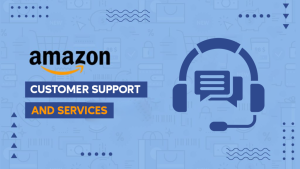E-commerce is a booming industry that offers many opportunities for online businesses to reach new customers, increase sales, and grow their brand. However, e-commerce also comes with many challenges and risks, especially in terms of cybersecurity. Cyberattacks on e-commerce websites can result in data breaches, financial losses, reputational damage, and legal liabilities. Therefore, it is essential for online businesses to implement effective e-commerce security measures to protect their websites, transactions, and customers from cyber threats.
In this blog post, we will explore some of the common e-commerce security threats, the best practices to follow, and the tools and solutions that can help you secure your online business.
Common E-commerce Security Threats
E-commerce websites are constantly targeted by cybercriminals who use various methods and techniques to exploit vulnerabilities, steal data, or disrupt operations. Some of the most common e-commerce security threats are:
- Financial fraud: This is when cybercriminals use stolen or fake credit cards, account takeover, chargeback fraud, or other schemes to make unauthorized purchases or transactions on e-commerce websites. Financial fraud can result in revenue losses, chargeback fees, and customer disputes.
- Malware: This is malicious software that can infect e-commerce websites or devices and perform harmful actions such as stealing data, redirecting traffic, displaying ads, or encrypting files. Malware can compromise the functionality and performance of e-commerce websites and expose sensitive information.
- Bots: These are automated programs that can perform various tasks on e-commerce websites such as scraping data, creating fake accounts, posting spam, or placing orders. Bots can consume bandwidth, affect site speed, skew analytics, and damage the reputation of e-commerce websites.
- Social engineering attacks: These are attacks that rely on human psychology and manipulation to trick users into revealing personal or financial information, clicking on malicious links, or downloading malware. Social engineering attacks can take the form of phishing emails, fake reviews, or impersonation.
- DoS and DDoS attacks: These are attacks that aim to overwhelm e-commerce websites with a large amount of traffic or requests and prevent them from functioning properly. DoS and DDoS attacks can cause downtime, lost sales, customer dissatisfaction, and reputational damage.
- Brute force attacks: These are attacks that attempt to guess the passwords or credentials of e-commerce websites or users by trying different combinations until they find the correct one. Brute force attacks can lead to unauthorized access, data theft, or account takeover.
- E-skimming: This is a type of attack that involves injecting malicious code into e-commerce websites or payment pages to capture payment card information from customers as they enter it. E-skimming can result in data breaches, financial losses, and customer complaints.
Best Practices for E-commerce Security
To protect your online business from these and other cyber threats, you need to follow some best practices for e-commerce security. Here are some of the most important ones:
- Use strong and unique passwords: Passwords are the first line of defence for your e-commerce website and accounts. You should use strong and unique passwords that are hard to guess and different for each website or account. You should also change your passwords regularly and avoid using common or default passwords.
- Choose a secure hosting provider: Your hosting provider is responsible for storing and delivering your e-commerce website content to your customers. You should choose a reputable and reliable hosting provider that offers security features such as SSL certificates, firewalls, malware scanning, backups, and updates.
- Get an SSL certificate: An SSL certificate is a digital certificate that encrypts the communication between your e-commerce website and your customers’ browsers. It ensures that the data exchanged is secure and authentic. An SSL certificate also helps you gain customer trust and improve your SEO ranking. You should get an SSL certificate from a trusted authority and install it on your e-commerce website.
- Install security plugins and anti-malware software: Security plugins and anti-malware software are tools that can help you detect and prevent cyberattacks on your e-commerce website. They can scan your website for vulnerabilities, malware, bots, spam, or other threats and block or remove them. You should install reputable security plugins and anti-malware software on your e-commerce website and keep them updated.
- Schedule regular updates: Updates are essential for keeping your e-commerce website secure and up-to-date. They can fix bugs, patch vulnerabilities, improve performance, or add new features. You should schedule regular updates for your e-commerce platform, plugins, themes, software, or any other components of your website.
- Perform timely backups: Backups are copies of your e-commerce website data that you can restore in case of a disaster such as a cyberattack, a hardware failure, or a human error. Backups can help you recover your website quickly and minimize the impact of data loss. You should perform timely backups of your e-commerce website data and store them in a safe location.
- Add multi-factor authentication (MFA): MFA is a security feature that requires users to provide more than one piece of evidence to verify their identity before accessing your e-commerce website or account. MFA can prevent unauthorized access, data theft, or account takeover. You should add MFA to your e-commerce website or account and encourage your customers to use it as well.
- Use a CDN (Content Delivery Network): A CDN is a network of servers that deliver your e-commerce website content to your customers based on their geographic location. A CDN can improve your website speed, performance, and availability. It can also protect your website from DoS and DDoS attacks by distributing the traffic load and filtering out malicious requests. You should use a CDN for your e-commerce website and choose one that offers security features such as SSL encryption, firewall, or DDoS protection.
- Regulate user roles and permissions: User roles and permissions are the levels of access and control that you assign to different users of your e-commerce website such as administrators, editors, authors, or customers. User roles and permissions can help you manage your website effectively and securely. You should regulate user roles and permissions for your e-commerce website and grant the minimum necessary access to each user.
- Use secure payment gateways: Payment gateways are services that process online payments for your e-commerce website. They handle the communication between your website, your customers, and the banks or card issuers. Payment gateways can also protect your website and customers from fraud and chargebacks. You should use secure payment gateways for your e-commerce website and choose ones that comply with industry standards such as PCI DSS, GDPR, or CCPA.
- Avoid storing confidential data: Confidential data is any data that is sensitive or personal such as payment card information, passwords, or customer details. Storing confidential data on your e-commerce website can expose it to cyberattacks and data breaches. You should avoid storing confidential data on your e-commerce website and use encryption, tokenization, or other methods to protect it.
Tools and Solutions for E-commerce Security
In addition to following the best practices for e-commerce security, you can also use various tools and solutions that can help you secure your online business. Some of the tools and solutions that you can use are:
- Imperva: Imperva is a leading provider of cybersecurity solutions for e-commerce websites. Imperva offers a comprehensive suite of products that can protect your website from various cyber threats such as bots, malware, DDoS attacks, API attacks, or e-skimming1. Imperva also provides security insights, analytics, and reports that can help you monitor and improve your website security.
- Sucuri: Sucuri is a popular security plugin for WordPress e-commerce websites. Sucuri can scan your website for malware, vulnerabilities, spam, or other threats and clean or remove them. Sucuri also offers a firewall, a CDN, an SSL certificate, and a backup service that can enhance your website security.
- Shopify: Shopify is a leading e-commerce platform that powers over 1.7 million online stores worldwide2. Shopify offers a secure and reliable hosting service that includes an SSL certificate, a firewall, a backup system, and regular updates. Shopify also integrates with many secure payment gateways that comply with PCI DSS standards.
- WooCommerce: WooCommerce is another popular e-commerce platform that runs on WordPress. WooCommerce allows you to create and customize your own online store with various plugins, themes, extensions, or integrations. WooCommerce also offers security features such as SSL encryption, MFA, user roles and permissions, and secure payment options.
Conclusion
E-commerce security is a vital aspect of running a successful online business. By following the best practices for e-commerce security and using the tools and solutions that we have mentioned in this blog post, you can protect your online business from cyber threats and provide a safe and satisfying shopping experience for your customers.
If you need any help with setting up or securing your e-commerce website, you can contact us at eStores Expert. We are a team of experienced and professional e-commerce developers who can help you create and maintain a secure and high-performing online store. Contact us today for a free consultation!





